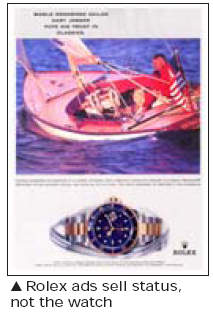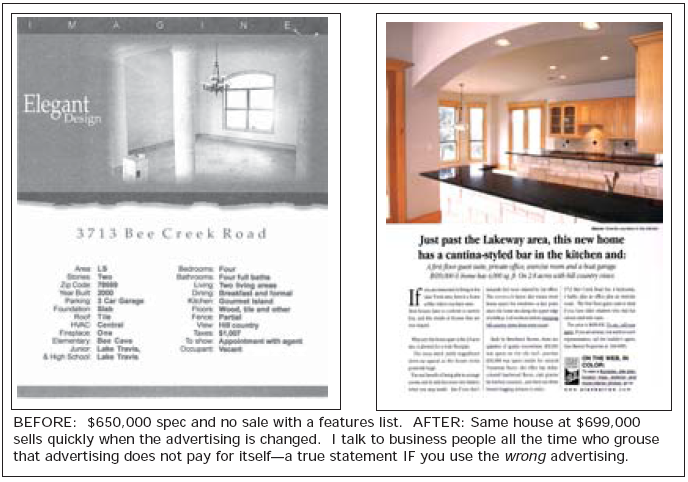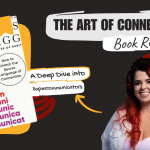They’ve studied human nature and behavior for more than 75 years. And even in their early days, they knew that respondents do not always give reliable feedback.
In face-to-face surveys about radio, Gallup’s people would start by asking, “Which would you rather hear on the radio tonight—Jack Benny or a Shakespeare play?”
If the respondent said Shakespeare, they knew he was a liar and broke off the interview.
Ask one hundred people today if they make buying decisions based on emotion, and they will all say “No”. But, this is equally unreliable feedback. In the American psyche, emotions are shunned. They are viewed as a sign of weakness. The truth is we all rationalize with facts, but we buy on emotion.
Understanding this is one of the key elements that separates money-losing advertising from profitable advertising and top-income earners from agents who are barely scraping by.
Common Traits Of Novice Marketing
Novices tend to market the obvious—that which is tangible. If they are selling a product, this usually means a dry description of features. In the real estate business this is why you see a house promoted with a simple flyer that lists items such as the number of bedrooms, baths, etc. Computers are routinely promoted with nothing more than a list of specifications such as the processor speed or size of the hard drive.
And if a company provides a service instead of a product, you see the same tired promises over and over. “Me-too” claims from this school of thought often take the form of brag-and-boast promises about quality…or “Our customers are number one” or “We have 47 years of combined experience” themes.
Examples Of Emotion-Based Marketing
At one time, the hottest segment of the auto industry was Sport Utility Vehicles (SUV’s). But were they being purchased because consumers have a genuine need to traverse the outback? Don’t kid yourself. The closest thing most SUV’s will ever come to rugged terrain is a speed bump in a shopping center. SUV’s are purchased for the lifestyle image they project—pure emotion, and this is okay.
And do people shell out $10,000 for a Rolex watch because it keeps time accurately? No, people buy a Rolex for its prestige. You have seen Rolex ads for years. Their marketing doesn’t try to impress you with its quality materials. Rolex ads are normally done in the form of a short bio about a famous person or adventurer. They associate their product with successful people.
Want another example? The average business person would likely agree that “good food” is crucial to the success of any restaurant business. But are you sure? McDonalds sells more hamburgers than anyone in the world, but do they make the best hamburger? Not by a long shot. For years, McDonalds has used emotion-laden TV commercials with kids as the theme. When you think of McDonald’s you don’t think of the unique flavor of the food, you think fast, clean, consistent.
How To Sell More Homes By Putting An
EMOTIONAL Angle In Your Ads
If you want to win over more customers, try to get at the real — the deep-seated — reasons that make them buy. Don’t tell them about you…tell them how they will benefit from purchasing your service or product.
Because I was fortunate enough to receive firsthand “advertising agency” experience, my ads include an emotional appeal instead of straight facts.
The good news is, you can quickly learn from my years of experience by looking closely at the following example of an emotion-laden homes ad.
The house featured below had been on the market for over six months. The previous marketing (shown below as ‘BEFORE’) was a typical flyer that simply described the physical structure such as, “ Parking: 3-car garage, Foundation: Slab, Fireplace: One, Kitchen: Gourmet Island,” etc.
The ad I used (shown below as ‘AFTER’) told what it would be like to live in the house—an appeal with much more emotion. It sold the house quickly.
(Click the image to download a PDF of the full ‘AFTER’ ad)
Using a similar approach in your homes ads can help you sell more homes, in a fraction of the time.
Have you ever heard of the 80/20 rule?
It suggests that 80% of sales are made by only 20% of the salespeople—a pattern found in almost every industry. But, the same is true of advertising—some ads sell more than others.
The famous copywriter, Claude Hopkins, said: “A mediocre salesman effects part of your business. But, mediocre advertising effects all of your business.”
I have a feeling you didn’t get in to real estate to be mediocre. Question is, will you take the time to learn and apply what I’ve taught you through this example?
I hope you will. It’s a powerful way to differentiate yourself from every other agent out there, sell homes faster, and make more money. The choice is yours.
[Ed note: Copyright Stan Barron. Reprinted with permission. If you, or someone you know wants to sell a house, please give Stan a call at 512-345-8585.]









Leave a Reply